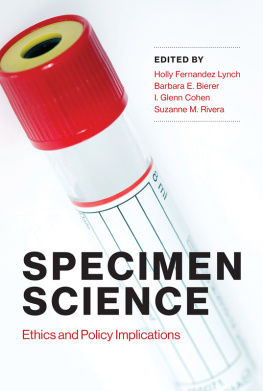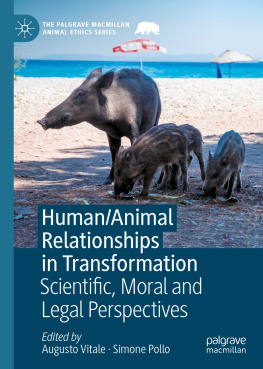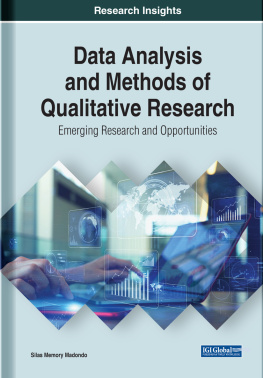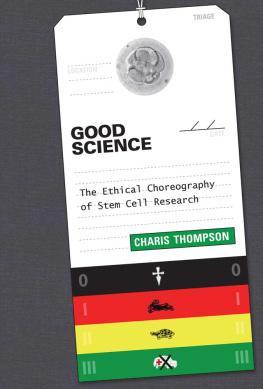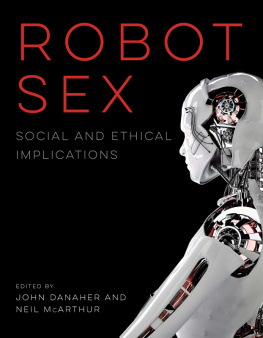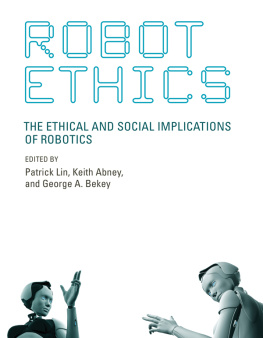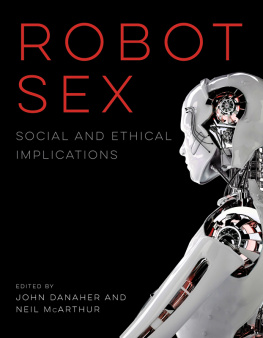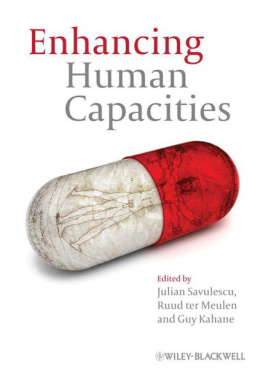
Basic Bioethics
Arthur Caplan, editor
A list of the books in the series appears at the back of the book.
Specimen Science
Ethics and Policy Implications
edited by Holly Fernandez Lynch, Barbara E. Bierer, I. Glenn Cohen, and Suzanne M. Rivera
The MIT Press
Cambridge, Massachusetts
London, England
2017 Massachusetts Institute of Technology
All rights reserved. No part of this book may be reproduced in any form by any electronic or mechanical means (including photocopying, recording, or information storage and retrieval) without permission in writing from the publisher.
Set in ITC Stone Sans Std and ITC Stone Serif Std by Toppan Best-set Premedia Limited. Printed and bound in the United States of America.
Library of Congress Cataloging-in-Publication Data
Names: Lynch, Holly Fernandez, editor. | Bierer, Barbara E., editor. | Cohen,
I. Glenn, editor. | Rivera, Suzanne Marie, 1969- editor.
Title: Specimen science : ethics and policy implications / edited by Holly
Fernandez Lynch, Barbara E. Bierer, I. Glenn Cohen, and Suzanne
Rivera.
Description: Cambridge, MA : The MIT Press, [2017] | Series: Basic bioethics
| Includes bibliographical references and index.
Identifiers: LCCN 2016041471 | ISBN 9780262036108 (hardcover : alk. paper)
eISBN 9780262339704
Subjects: LCSH: Biological specimens--Moral and ethical aspects. |
Bioethics--Legal issues.
Classification: LCC QH231 .S64 2017 | DDC 174.2--dc23
LC record available at https://lccn.loc.gov/2016041471
ePub Version 1.0
To Dr. Leona Cuttler (19512013), pediatrics research pioneer, and to all those whose contributions of biospecimens have helped to improve the diagnosis and treatment of disease, ameliorate suffering, and advance human health.
Series Foreword
Glenn McGee and I developed the Basic Bioethics series and collaborated as series co-editors from 1998 to 2008. In fall 2008 and spring 2009 the series was reconstituted, with a new editorial board, under my sole editorship. I am pleased to present the forty-eighth book in the series.
The Basic Bioethics series makes innovative works in bioethics available to a broad audience and introduces seminal scholarly manuscripts, state-of-the-art reference works, and textbooks. Topics engaged include the philosophy of medicine, advancing genetics and biotechnology, end-of-life care, health and social policy, and the empirical study of biomedical life. Interdisciplinary work is encouraged.
Arthur Caplan
Basic Bioethics Series Editorial Board
Joseph J. Fins
Rosamond Rhodes
Nadia N. Sawicki
Jan Helge Solbakk
Acknowledgments
This volume was based on a public conference held at Harvard Law School in November 2015, the proceedings of which are available at http://petrieflom.law.harvard.edu/events/details/specimen-science-ethics-and-policy/.
We gratefully acknowledge the support of our various collaborators, including The Center for Child Health and Policy at Case Western Reserve University and University Hospitals Rainbow Babies & Childrens Hospital; the Petrie-Flom Center for Health Law Policy, Biotechnology, and Bioethics at Harvard Law School; the Multi-Regional Clinical Trials Center of Brigham and Womens Hospital and Harvard; and Harvard Catalyst | The Harvard Clinical and Translational Science Center. Both the conference and this volume were supported by funding from the National Human Genome Research Institute.
We also wish to thank Cristine Hutchison-Jones and Justin Leahey from the Petrie-Flom Center, and our fantastic research assistantsEthan Stevenson, Shailin Thomas, and Jos LaMarquewho helped us line edit and format the entire manuscript.
Last, but certainly not least, we sincerely thank all of our contributors for their tremendous efforts.
Introduction
Suzanne M. Rivera, Barbara E. Bierer, I. Glenn Cohen, and Holly Fernandez Lynch
When a blood specimen is drawn from a vein in your arm, is that specimen still you? Do you own it? Are you entitled to any intellectual property interest in or profit from a product derived from it? What if its value is only understood by pooling information from 10,000 blood specimens? Should you be allowed to direct who may use your left-over blood specimen for research or specify under what circumstances such uses may occur? What about your hair that lands on the barbershop floor? Or a tumor that has been excised to prevent it from killing you? These are real questions at the center of a vigorous ethical and legal debate surrounding the use of human biospecimens for researchand they are questions that affect us all.
Existing case law on the collection, storage and use of biospecimens suggests that people do not own their bodily tissue once it has been removed from them. But there is an emerging line of inquiry that questions whether individuals ought to be asked explicitly at the time of collection for consent to use their blood or tissues for research. How far such an ethical requirement might extend remains a heated topic of debate. Should research use of excess tissues that otherwise would be discarded after a surgical procedure also require explicit informed consent? What if there is no identifying information attached to the tissues because researchers need only 100 lung tumor biopsies and dont need data about their donors? What about tumor specimens collected years ago, before their research uses became evidentshould they be unavailable for research now because the original source cannot be found and asked for consent? And if excess tissues are used for research, and ultimately result in the development of a lucrative medical treatment, should the source of the tissues have a right to share in the profits?
These questions fall into a significantly contested area for the ethical conduct of human subjects research. Humans have been experimenting on one another since the beginning of time, but the voluntary nature of participation in such experiments only developed as an ethicaland eventually legalrequirement over the course of the last century (). The most famous articulation of this principle is found in the Nuremberg Code, promulgated by American judges in 1947 at the trial of Nazi doctors for war crimes following their experimentation on concentration camp prisoners during World War II. The Nuremberg Code establishes that [t]he voluntary consent of the human subject is absolutely essential, and subsequent US government policy and regulations adopted the same requirement, although not without exception. The regulations governing human subjects research in the United States demand voluntary consent for research participation in most instances, while allowing consent to be forgone, waived, or modified in othersin particular when the research itself is deemed not to involve human subjects at all, which has been the case for certain uses of biospecimens.
A requirement of voluntary consent is not particularly burdensome in the context of prospective researchnamely, when biospecimens are collected in person from living individuals for use in a particular study. In these cases, you simply ask permission of the person standing before you, and they can either agree or decline to provide a research specimen. Indeed, in such cases, consent is both ethically mandatory and required by regulation. It becomes much more challenging, howeverboth ethically and practicallywhen one wishes to conduct research on biospecimens that already have been collected in the course of clinical care or earlier research. In these cases, researchers do not have (and may not be able to find) the biospecimen source immediately before them to ask for explicit consent for the research use being contemplated. Should the research be forgone? Is consent really necessary in this context, and what are the limits of acceptable use before consent becomes necessary? These questions have come to the fore in a series of foundational casessome in courts of law and others in the court of public opinionover the last 25 years.
Next page
